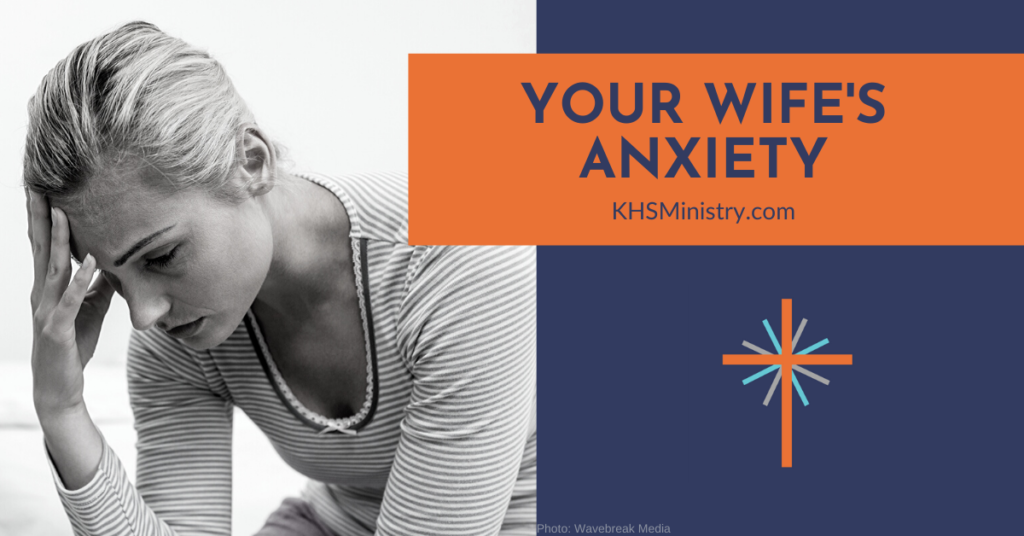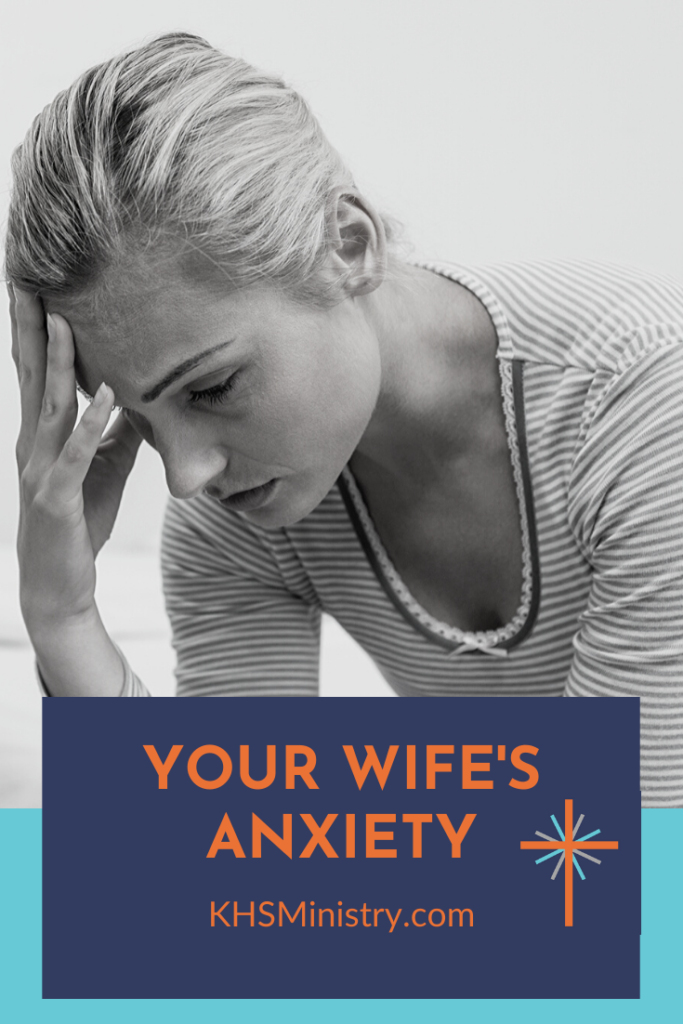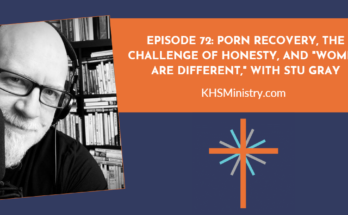
As I write this post, the Coronavirus outbreak has taken hold, with unprecedented measures taken to stop the spread of this disease. Whatever you think about the seriousness of COVID-19 and society’s responses, polls consistently show a gender gap in how men and women perceive the situation.
Women are more worried than men.
Their anxiety over this event tracks well with their general anxiety. Women are nearly twice as likely as men to meet the criteria of an anxiety disorder, and they self-report worry more often as well.
Anxiety affects sexual interest.
In addition to other challenges you may be confronting right now—disruptions in work, income, schooling, replenishing supplies, etc.—your wife is probably more worried than you are. And worry dampens sexual interest for many women.
Ongoing anxiety can make it difficult for your wife to shut out distractions, focus on physical pleasure, and enjoy lovemaking.
Why is she so worried?
A number of factors contribute to women’s higher overall anxiety.
Testosterone provides some protection against anxiety, and women have less of it. Women also experience fluctuations of estradiol and progesterone throughout their cycles, pregnancy, and postpartum. These ups and downs impact our mood and the level of serotonin, a happy hormone, in our bodies.
In addition, societal expectations allow females to either express their anxiety more than men or to keep from releasing it in viable ways. That is, women may report more anxiety because we’re allowed to talk about it and/or we may not take up kickboxing or some other activity that could alleviate stress.
And then there’s the typical female response to stress: tend-and-befriend. When confronted with danger, many women don’t respond with fight-or-flight. Rather, they tend to themselves and their loved ones, especially children, and they befriend others from social networks that can help.
One quick scan of social media right now, and you’ll see moms everywhere focused on the health and safety of their children. But that tendency to befriend others when in crisis cannot be realized when shut off from usual social networks or socially distanced to prevent the spread of disease.
Many wives and moms feel helpless right now, worrying and wondering how to best tend to their loved ones. Including you.
Sex is still a good idea.
Sex can be a soothing experience in the midst of distress. The Bible gives us examples of sex as comfort, and oxytocin released during sexual intimacy lowers the stress hormone cortisol. Then there’s the benefit of just feeling connected with one another.
You can share these points with her, but it’s likely more important to help relieve her anxiety.
Let me first share how you don’t do it, courtesy of my husband and me. He used to say to me when I was anxious, “Don’t worry about it.” As if it was a choice for me. Finally, one day I turned to him and said, “I literally have no idea what that looks like. If I try to stop, the worry pops back up, over and over and over. And you telling me I should be able to turn off the worry is just one more worry for me.”
That ended up being a productive conversation about what he could do. Here are a few of those ideas.
- Acknowledge and respect her level of concern. You may not have the same worry, but that doesn’t mean hers is invalid. Remember 1 Peter 3:7’s charge to “live with your wives in an understanding way” (ESV).
- Reassure her with words and affection. Your wife may need additional reassurance of your presence, commitment, and caring. Even a long hug could make a big difference.
- Ask what tasks you can help her with or take over. If time and place permit, help her get things done so that she has mental space left for sexual intimacy.
- Encourage her to reach out to her friends and family. Honor her befriend tendency by suggesting she connect with loved ones through phone calls, messages, video calls, etc.
- Take precautions yourself. Many wives worry about their husbands taking health risks. Whether or not you agree, why not take those few extra precautions? It won’t cost you much, and it could ease her heart.
- Invite her into intimacy. Remind her that you love and value her and want to maintain the connection sex can bring. Then woo her into the bedroom with your oh-so masculine charm.

- “Women are more likely to suffer from anxiety than men.” NHS. Accessed March 18, 2020.
- Graham, Bronwyn M. “Sex Hormones and Gender Vulnerabilities to Anxiety Disorders.” Psychiatric Times, November 30, 2018..
- Wiebe, Jamie, Rodman, Samantha, Rauch, Joseph, and Gattuso, Reina. “What Is The Relationship Between Hormones and Anxiety?” Talkspace, August 9, 2019.
- Hot, Holy & Humorous: 4 Ways Sex Can Comfort in Crisis or Grief.
- Hot, Holy & Humorous: How Sex Can Help Us Cope.




Wow! What a great and timely post! We men, really appreciate stuff like this. Very practical and explains a lot!
Blessings!